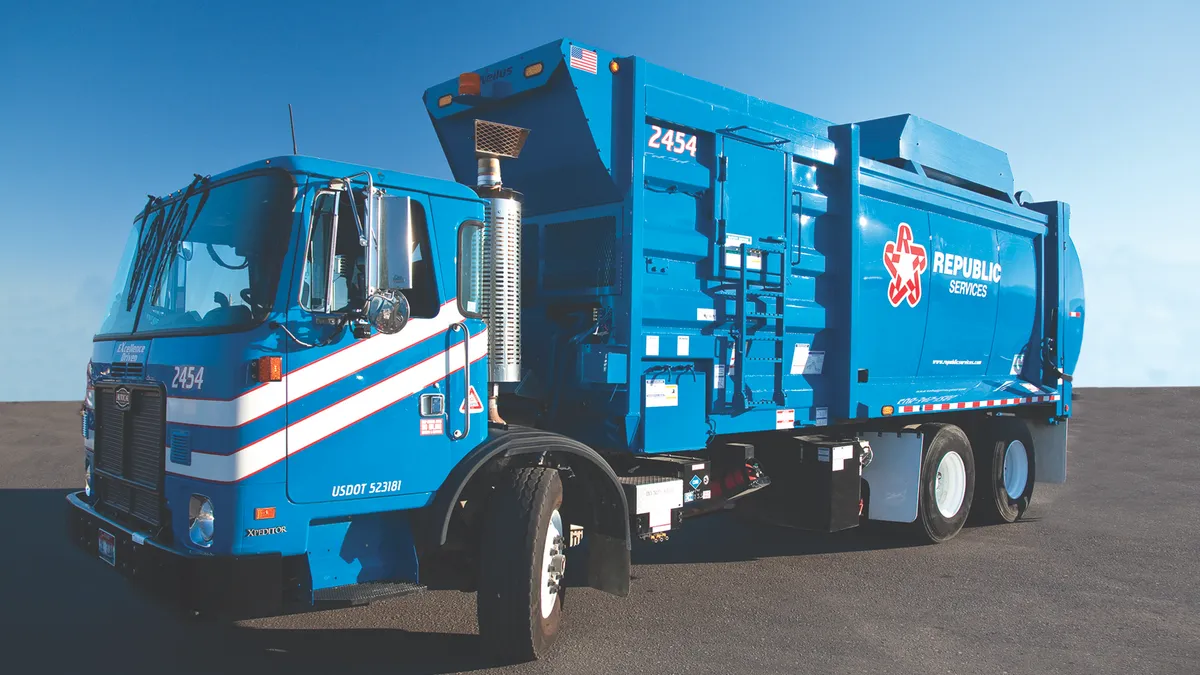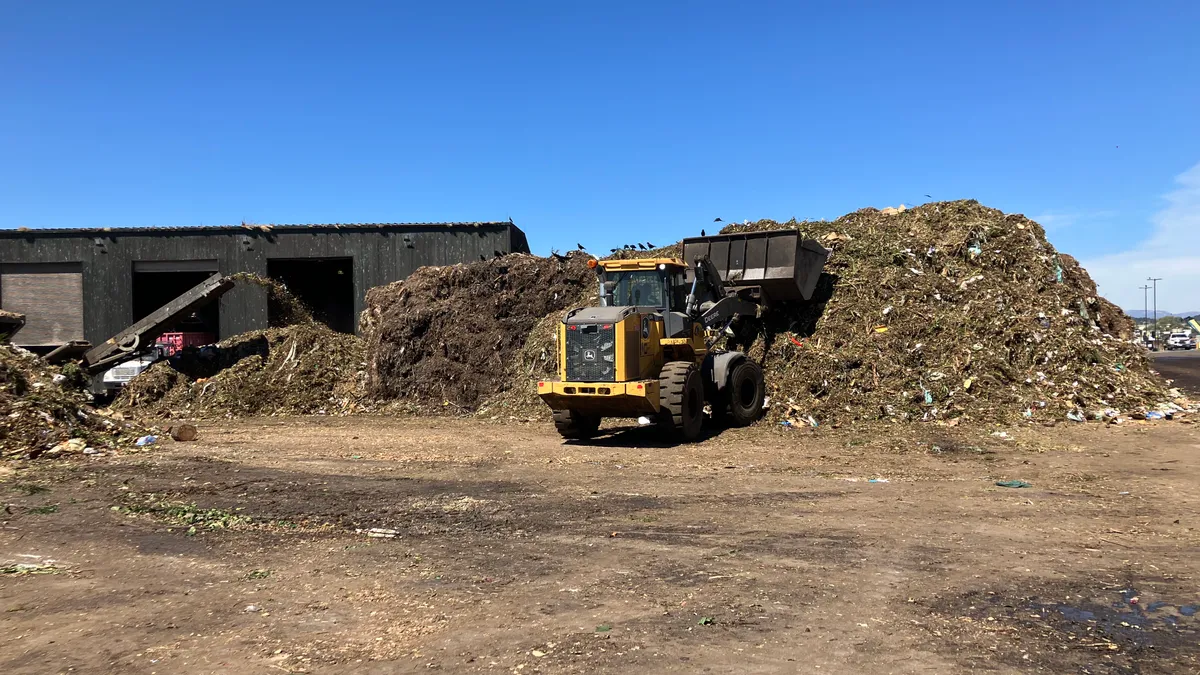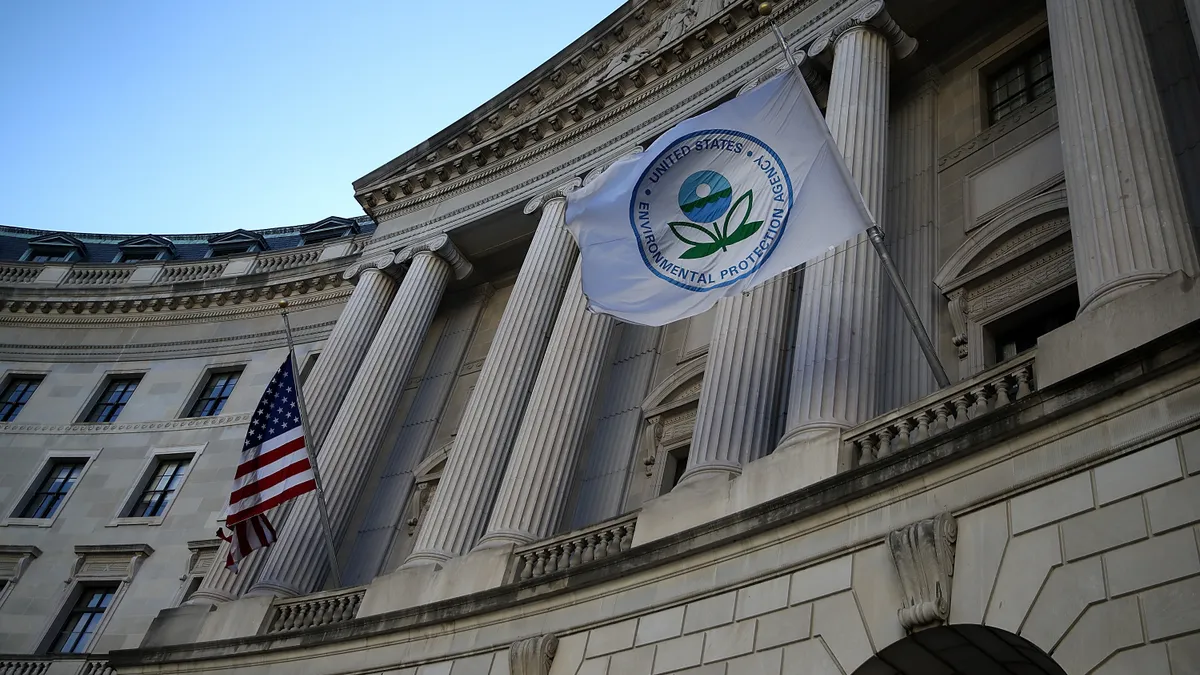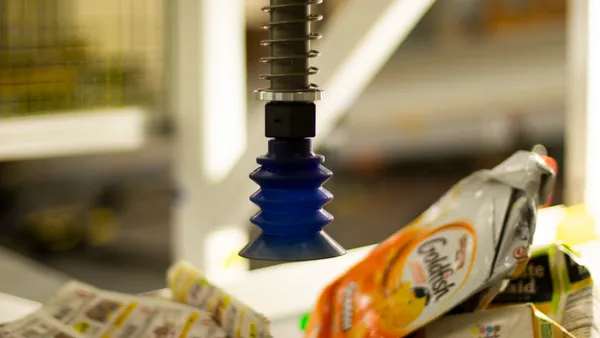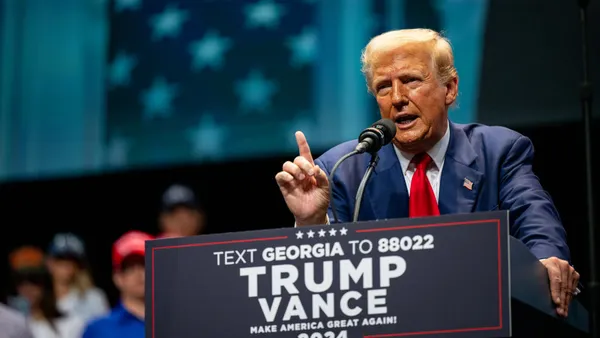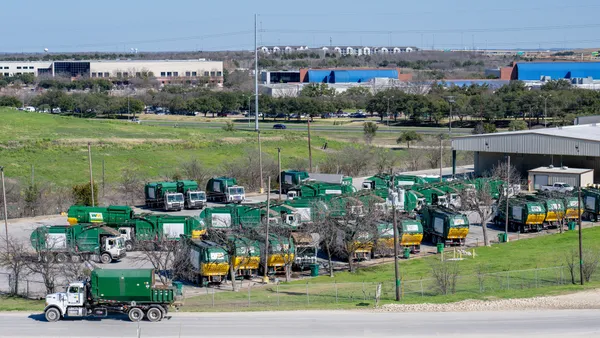The latest annual sustainability report from Republic Services included mention of a coalition called Together for Safer Roads (TSR) that was unfamiliar to Waste Dive and may still be a new name for some in the industry.
TSR was founded by AB InBev, AIG and AT&T in 2014, with Republic joining in 2016 as the final member of the organization's governing board. GM, Lyft, PepsiCo, UPS and Walmart are also members. With more than 1 million people killed in road safety incidents around the world each year – including more than 37,461 in the U.S. during 2016 – the goal is to bring a diverse mix of private sector perspectives together to address the issue.
TSR's President David Braunstein has previously described TSR as "diverse by design" and said it was specifically formed to be unique from other industry-specific nonprofits or trade associations. We recently caught up with Republic's Senior Vice President of Safety Jim Olson to learn more.
Olson said Republic had become "increasingly frustrated" by an uptick in "non-preventable fatal crashes" that could be physically or mentally life-changing for its drivers. This includes third-party vehicles crossing into oncoming traffic, rear-ending trucks or other scenarios.
Distracted driving is thought to be a key factor here, which is why the collaboration with AT&T was so appealing, according to Olson. Just like AB InBev and others in its industry have been involved with drunk driving education, AT&T's "It Can Wait" campaign has now become a national model for responsible cell phone usage. Republic was compelled by that work.
"It’s very difficult for Republic as a company to reach individual drivers of vehicles people like AT&T can," said Olson. "The thing that excites me the most about TSR is the companies that are member companies, like a Lyft or an AT&T, are organizations that can truly impact drivers around industry trucks. So whether it’s us or Waste Management, or Waste Connections."
Olson said this is of course an industrywide issue, but regional or local companies likely experience it less than those running national fleets and so it may not be viewed as a key issue. His goal is to help share best practices from other member companies with those in the waste world and potentially help form new partnerships with industry trade associations.
The NWRA's recent announcement that it had joined the National Safety Council's Road to Zero Coalition is another example of how these cross-industry alliances may be the way of the future.
In addition to foundational messaging around a safety pledge, TSR has been actively working with local governments on traffic safety infrastructure and data projects. Examples cited in the coalition's 2017 report include Atlanta, São Paolo and Shanghai. TSR also has an ongoing Global Entrepreneur Program that selects start-up technology companies to partner with coalition members and try out new concepts. The second cohort was announced last week.
Republic has been working with one called HAAS Alert that was originally designed as a tool for emergency vehicles to communicate their presence in the area via traffic apps such as Waze. The company is now working on capabilities that could alert drivers to the presence of a collection vehicle up ahead.
This function is currently being piloted on a small number of Republic trucks in Chicago. Olson said potential benefits could include diverting drivers to alternate roads if a collection vehicle is working on a tight city street, or giving them advance notice if a collection vehicle is around a curve or obscured by sunlight in rural areas.
As evidenced by ongoing safety issues for collection workers around the country — including yet another fatal example in Louisiana this week — there is an urgent need for ongoing action.
"We’re hopeful with testing of that platform that we could make it safer for people working around trash trucks," Olson said. "It’s more and more difficult for them to do their jobs as more and more people are distracted while they’re driving."



